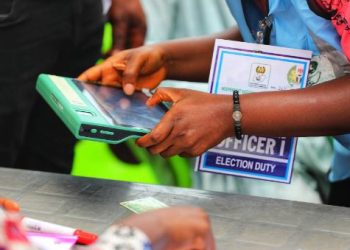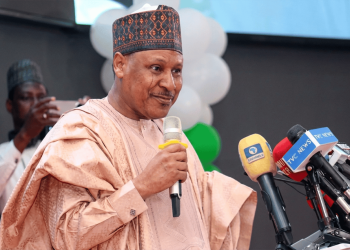The National Economic Council (NEC) on Thursday said it would begin a crackdown on illegal gold miners as part of a broader strategy to safeguard Nigeria’s natural resources and boost government revenue.
The move follows the Council’s decision to expand the mandate of its Ad-hoc Committee on Crude Oil Theft Prevention and Control, chaired by Imo State Governor Hope Uzodinma, to include the fight against illegal mining and mineral smuggling.
Briefing State House correspondents after the 153rd NEC meeting chaired by Vice President Kashim Shettima at the Presidential Villa, Abuja, Uzodinma said the expanded terms of reference reflect government’s resolve to close off revenue leakages from solid minerals.
“The National Economic Council Ad-hoc Committee on Crude Oil Theft Prevention and Control, which I chair, presented an interim report today to the Council.
“NEC received our report with satisfaction and expanded our Terms of Reference to now also take interest in solid minerals, because our solid minerals are being mined and stolen and not adding to national revenue,” said Uzodinma.
He added that the committee would work closely with the Ministry of Solid Minerals Development, the Nigeria Extractive Industries Transparency Initiative, and security agencies to curb gold smuggling, unregulated quarrying, and illicit mineral exports.
“Going forward, our committee, working with other government agencies, will look at how to ensure that the revenue of the country arising from solid minerals like gold and other forms of solid minerals is not allowed to be stolen,” Uzodinma said.
The ad-hoc committee was originally established under former President Muhammadu Buhari in August 2022 to combat crude oil theft and pipeline vandalism that had crippled national production and forced international oil companies to shut down key pipelines.
When President Bola Tinubu reconstituted the committee in December 2023, daily oil production had dropped to between 700,000 and 800,000 barrels per day, below the country’s OPEC quota, leading to major foreign exchange shortfalls.
Nigeria’s illegal mining sector is a multibillion-naira shadow economy, particularly in gold, lithium, and other high-value minerals.
According to NEITI, the country loses over $9bn annually to illicit extraction and mineral smuggling.
Unlicensed operations—often controlled by criminal syndicates and armed groups in the North-West and North-Central regions—have turned gold mining into a source of funding for banditry and cross-border crime.
A 2023 audit by NEITI revealed that over 80 per cent of Nigeria’s mining activities are informal and unregulated, while law enforcement struggles to track exports due to limited manpower and overlapping
mandates among agencies.
In September 2024, the Ministry of Solid Minerals revoked over 900 dormant mining licenses and announced a national gold reserve policy to improve traceability and domestic beneficiation.
According to Uzodinma, the expanded mandate aims to integrate the fight against illegal mining into the broader national resource protection framework previously used in the oil sector.
“We have done well,” he claimed, adding, “Among other things, we recommended that NNPC, working with security agencies and their consultants, should strengthen security in all the
creeks and extend coverage to offshore regions. That will help in curtailing and supervising illegal entries and exits of vessels into our export terminals.
This same spirit will now guide our solid minerals sector.”
The committee is expected to submit its first progress report on the expanded mandate at the next NEC meeting in November.















































